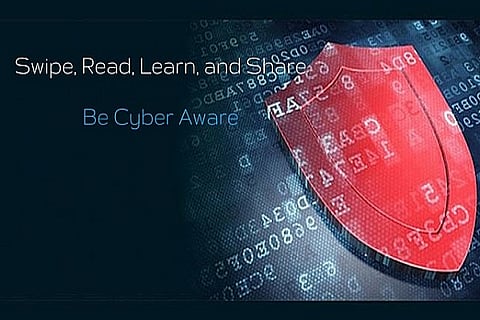

On the night of November 8, 2016, a lot changed for India. Demonetisation of the 500 and 1000 rupee notes pushed the country on a journey towards a cashless economy - whether we liked it or not. Digital, Cashless, Wallets: These were the words of the hour following Prime Minister Modi’s announcement.
But while the state’s policy dictated that this was the new direction for our economy, neither India’s genuine worry about online financial fraud nor our cyber security are there just yet.
Considering that there have been cyber-attacks in some of the most developed countries and in companies that have the best possible cyber security tools, why shouldn’t Indians be worried? Especially since India faced one of its worst cyber security breaches, when the systems of Hitachi Payment Services were compromised by a malware in mid-2016. This led to over 3.2 million cards being affected.
To address these fears, Anuj Goel and Akshat Jain founded Cyware a year ago.
What does Cyware do?
Cashing in on the digital economy push, Cyware is an Indo-American company that focuses on bringing about “cyber situational awareness” to cyber security professionals and general internet users, through expertly curated security news and tips.
Simply put, cyber situational awareness is the knowledge and understanding of how safe an IT infrastructure is, who or what could possibly threaten its functioning, and how that threat can be combated when necessary.
So how does Cyware work? The core technology is based on machine learning. Cyware understands the needs of its user based on what they do on the internet and pushes relevant content on cyber security to them.
“In a large corporate, every department has a different requirement of security. We accordingly push content to the users in that department to make them aware of the kind of breaches and attacks they may face,” says Akshat Jain, Co-founder, Cyware. This is supported by a huge back-end team that it deploys with the security division of the enterprise.
What is different about Cyware is that it focuses on making the human intelligent instead of the machine. “Every cyber security company focuses on making the machine intelligent and securing that end point. Until you make a human cyber security aware, no data is fully secure. The idea is to prevent an attack rather than reacting once it happens,” says Akshat.
One such tool is incident reporting, where a user can report any suspicious activity to the Cyware team, which then reviews it and takes appropriate action. This is their most popular feature, says Akshat, because it gives users a sense of knowledge and power over cyber security threats.
The company has two different apps for enterprises and general users. Revenue is generated through subscriptions charged to enterprise users based on their size and needs. For general consumers, it is free. Having raised angel funding in the US when it started, Cyware is now plus with funds that come in as revenue.
India’s cyber security situation
Interestingly, Cyware was never really interested in penetrating the Indian market. “We initially never planned on focusing on the Indian market. All our clients were in the US. Unlike India, US is a very mature market for cyber security. Till date, large corporates in India see cyber security as an expense and not a necessity,” says Akshat.
And then demonetisation happened. Jain says that the landscape of the Indian economy changed post demonetisation. A large number of people began transacting online and suddenly, there was a lot of awareness about the risk of the cyber world.
The government, too, swung into action immediately. Last month, it launched ‘Cyber Swachhta Kendra’ through its Computer Emergency Response Team (CERT-in). Cyber Swachchta Kendra is a desktop and mobile security solution to ensure the cyber space in the country is secure.
In the past year, India has seen a number of cyber security startups emerge. According to Forbes, the Data Security Council of India (DSCI), an industry body on data protection, has incubated 80 cyber security startups in the past two years.
Cyware’s India journey
Cyware currently has over 15,000 general users across India and US. For its enterprise solutions, it has 5 clients in the US. In India, Cyware hit a jackpot with its first client – the Telangana government.
It will now work with government employees to make them cyber-aware and help them report suspicious cyber security incidents. Cyware is also in talks with 7-8 corporates in India to bring them on board as users.
This is just the beginning for the company. The focus now for Cyware is to scale up. It wants to capture as much market as it can in India and then go on to bring on board the South-East Asia and UK markets.
On the consumer side, Cyware is now building the LinkedIn of the cyber security world. Jain feels that there are currently there are more jobs than there are people in the cyber security industry. The idea is to have a platform where companies can access the talent pool.
Cyware is also working with various state governments in India for public private partnerships. Education is one such area - Cyware wants to make every individual in the country ‘cyber aware’, starting from schools.